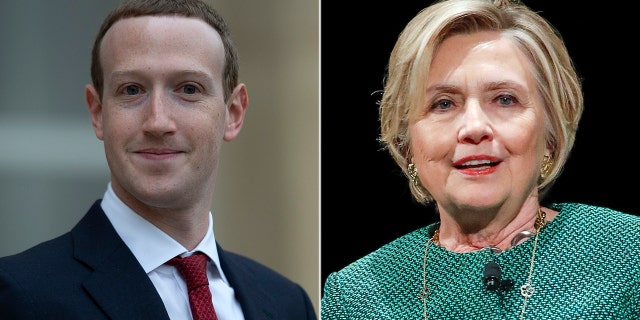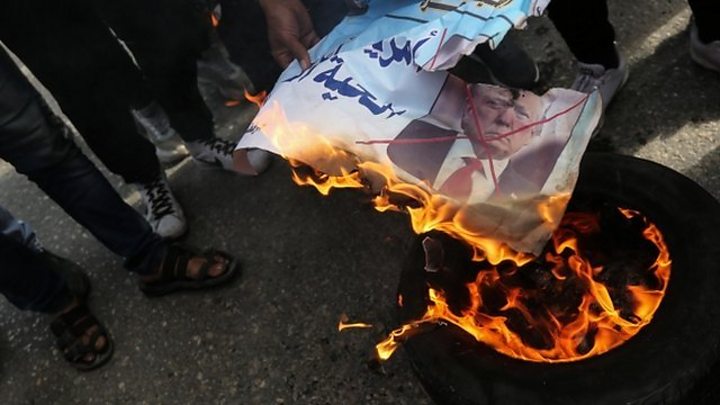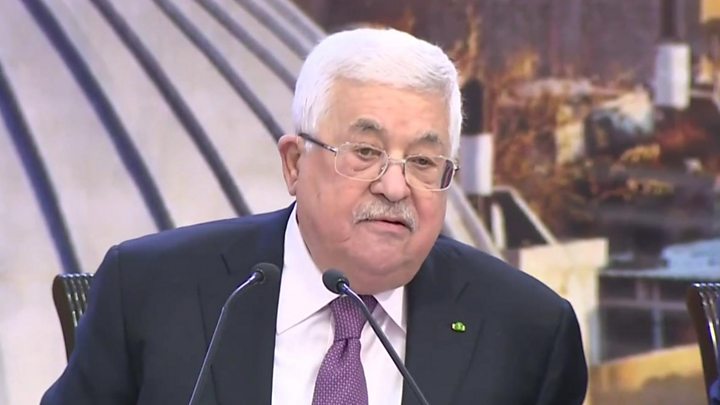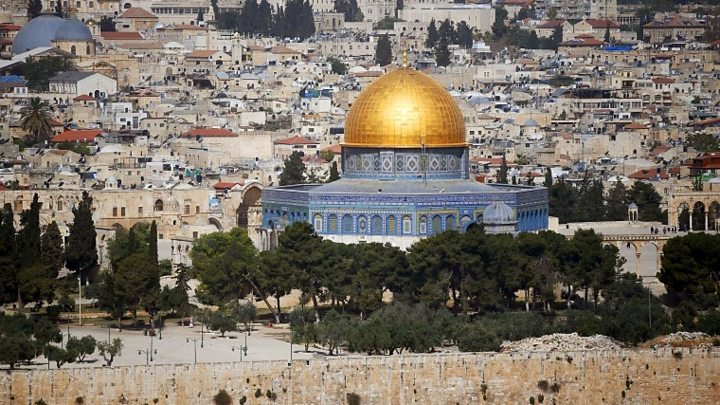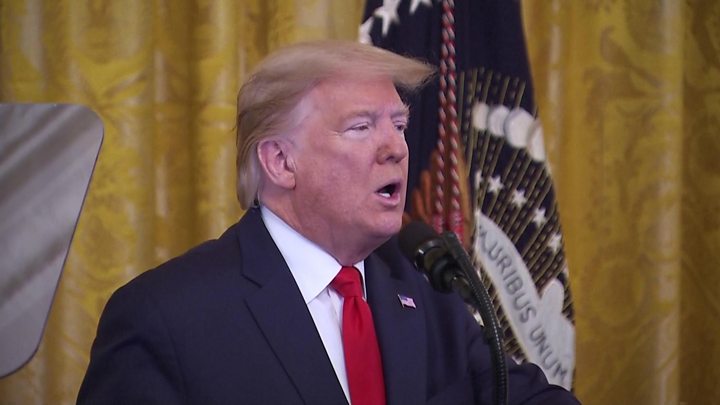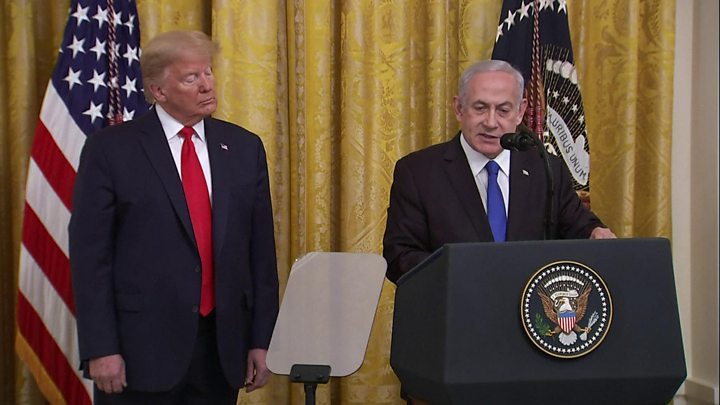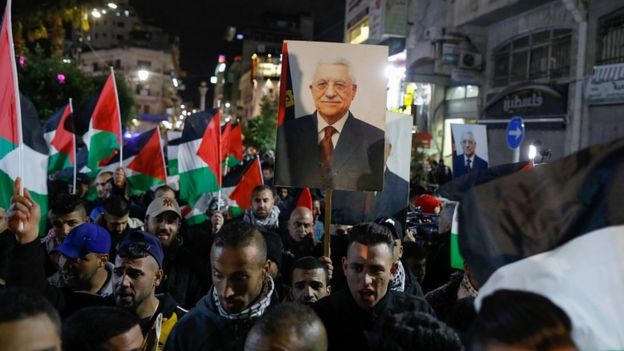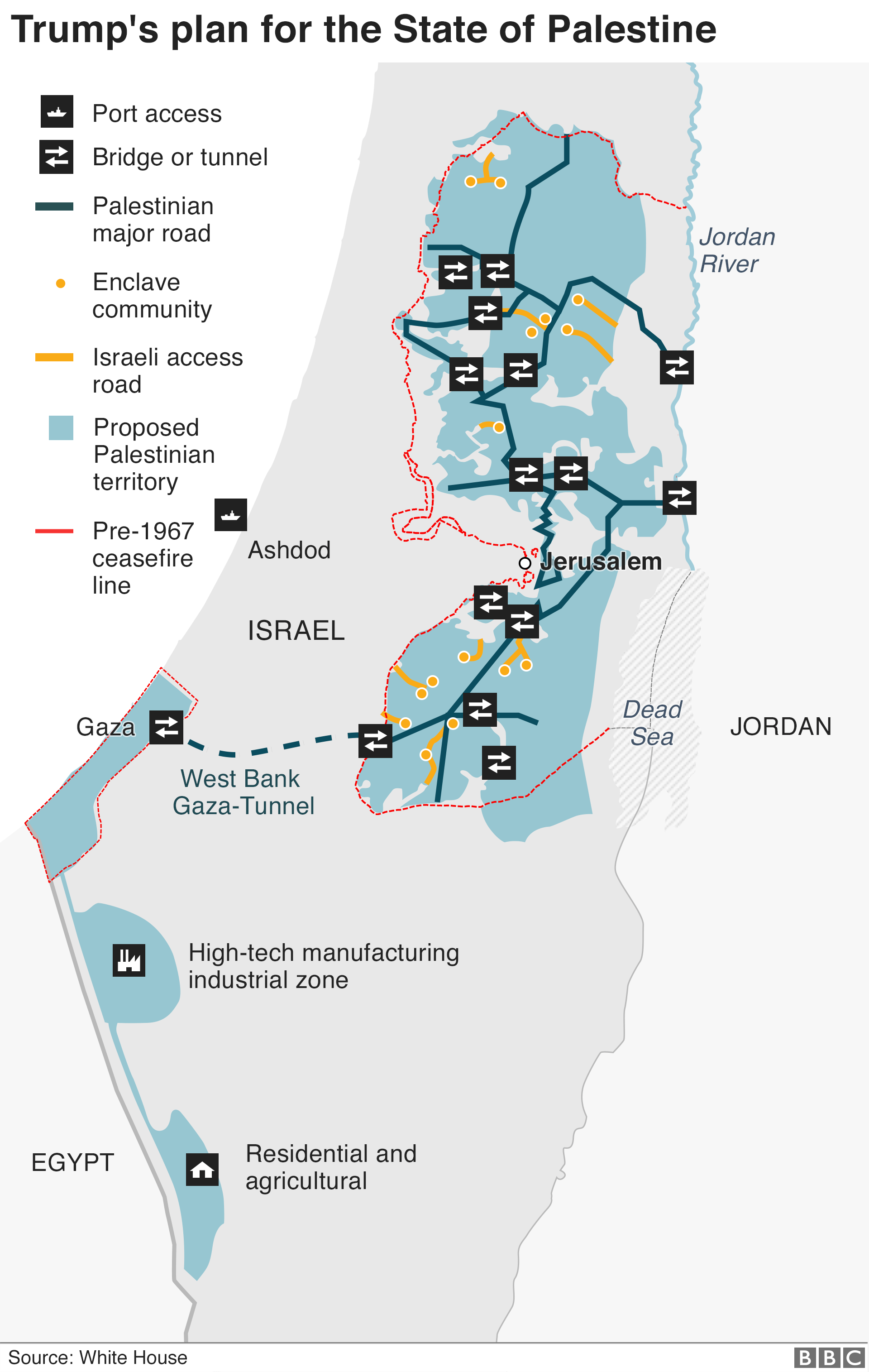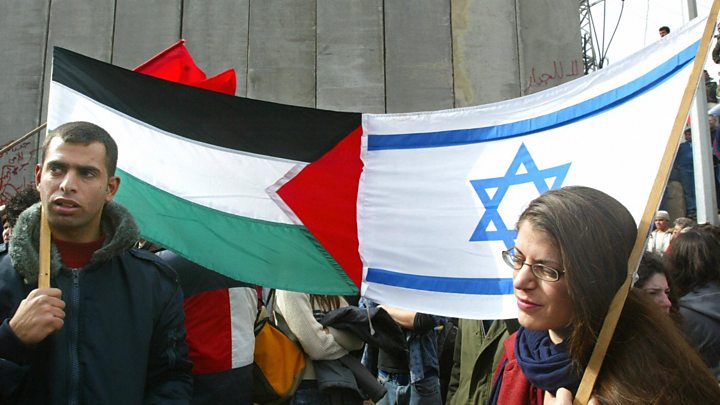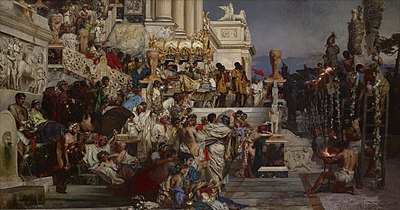Boom: Actor Isaiah Washington Dunks All Over Susan Rice on Impeachment
Posted at 4:30 pm on January 31, 2020 by Nick Arama

One of my personal favorites (as in love to call out for their nonsense favorites) from the Obama administration is former national security adviser Susan Rice.
She earned my eternal ire when she went on the Sunday shows on September 16, 2012, after the attack on the mission in Benghazi and spun the fiction about it being all about an “internet video.”
I distinctly still recall how she threw the Libyan President Mohamed Magariaf under the bus on “Face the Nation.” He had just said the attack was obviously preplanned by al-Qaeda and they had some folks in custody. Then Rice came next on the show and laid out the talking point that they didn’t know and it was about an internet video. It was ridiculous and shameful, to help protect Barack Obama and Hillary Clinton.
She really should have taken her ball and gone home, never showing her face again after that.
Obama Administration and “Lock her up”Clinton rolled out this lying scum to tell the narrative of why and who was responsible for the killing of Ambassador Stevens and three other brave men on that fateful day of September 11, 2012 in Benghazi Libya. We know the truth, others know the truth. But Hillary Clinton says, “what difference does it make.”
In Context: Hillary Clinton’s ‘What difference does it make’ comment
By Tom Kertscher on Wednesday, May 8th, 2013 at 10:33 a.m.
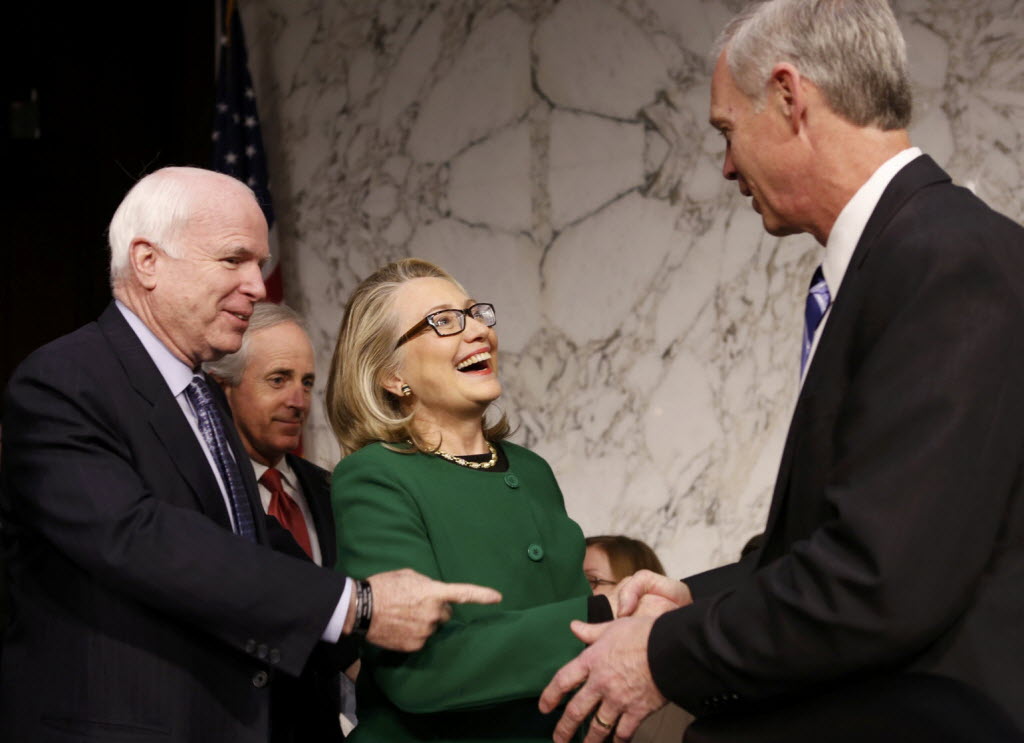
If the buildup doesn’t disappoint, you can expect plenty of news out of the U.S. House Oversight Committee hearing on May 8, 2013.
The panel will review how President Barack Obama’s administration — including then-Secretary of State Hillary Clinton — handled the Sept. 11, 2012 bombing at the U.S. consulate in Benghzai, Libya.
The attack killed four Americans — and set off administration critics such as U.S. Sen. Ron Johnson, R-Wis.
A few days before the hearing, it was disclosed that a top U.S. diplomat had said “everyone” at the consulate thought “from the beginning” that the attack was an act of terror.
And even before that, Johnson had reminded citizens at least twice of what Clinton told him about the attack during a Senate committee hearing in January 2013.
“Was it because of a protest or was it because of guys out for a walk one night and decided they’d go kill some Americans,” Clinton said. “What difference – at this point, what difference does it make?”
So that was the punch-line quote. But what was the context?
With Benghazi back in the news and renewed attention being paid to Clinton’s comment, we thought this would be a good time for In Context, an occasional feature that gives context to statements that get widespread notice.
Based on a C-SPAN video of their six-minute exchange, here is a transcript of what Johnson and Clinton said during the Senate Foreign Relations Committee hearing on Jan. 23, 2013:
Johnson: Thank you, Mr. Chairman and Madam Secretary. I’d like to join my colleagues in thanking you for your service sincerely, and also appreciate the fact that you’re here testifying and glad that you’re looking in good health.

Sponsored Content
You could start your day with savings
By Progressive
Clinton: Thank you.
Johnson: Were you fully aware in real time — and again, I realize how big your job is and everything is erupting in the Middle East at this time — were you fully aware of these 20 incidents that were reported in the ARB[State Department Accountability Review Board] in real time?
Clinton: I was aware of the ones that were brought to my attention. They were part of our ongoing discussion about the deteriorating threat environment in eastern Libya. We certainly were very conscious of them. I was assured by our security professionals that repairs were under way, additional security upgrades had taken place.
Johnson: Thank you. Did you see personally the cable on — I believe it was August 12th — specifically asking for, basically, reinforcements for the security detail that was going to be evacuating or leaving in August? Did you see that personally?
Clinton: No, sir.
Johnson: OK. When you read the ARB, it strikes me as how certain the people were that the attacks started at 9:40 Benghazi time. When was the first time you spoke to — or have you ever spoken to — the returnees, the evacuees? Did you personally speak to those folks?
Clinton: I‘ve spoken to one of them, but I waited until after the ARB had done its investigation because I did not want there to be anybody raising any issue that I had spoken to anyone before the ARB conducted its investigation.
Johnson: How many people were evacuated from Libya?
Clinton: Well, the numbers are a little bit hard to pin down because of our other friends —
Johnson: Approximately?
Clinton: Approximately, 25 to 30.
Johnson: Did anybody in the State Department talk to those folks very shortly afterwards?
Clinton: There was discussion going on afterwards, but once the investigation started, the FBI spoke to them before we spoke to them, and so other than our people in Tripoli — which, I think you’re talking about Washington, right?
Johnson: The point I’m making is, a very simple phone call to these individuals, I think, would’ve ascertained immediately that there was no protest prior to this. This attack started at 9:40 p.m. Benghazi time and it was an assault. I appreciate the fact that you called it an assault. But I’m going back to then-Ambassador [Susan] Rice five days later going on the Sunday shows and, what I would say, is purposefully misleading the American public. Why wasn’t that known? And again, I appreciate the fact that the transparency of this hearing, but why weren’t we transparent to that point in time?
Clinton: Well, first of all, Senator, I would say that once the assault happened, and once we got our people rescued and out, our most immediate concern was, number one, taking care of their injuries. As I said, I still have a DS [Diplomatic Security] agent at Walter Reed seriously injured — getting them into Frankfurt, Ramstein to get taken care of, the FBI going over immediately to start talking to them. We did not think it was appropriate for us to talk to them before the FBI conducted their interviews. And we did not — I think this is accurate, sir — I certainly did not know of any reports that contradicted the IC [Intelligence Community] talking points at the time that Ambassador Rice went on the TV shows. And you know I just want to say that people have accused Ambassador Rice and the administration of misleading Americans. I can say trying to be in the middle of this and understanding what was going on, nothing could be further from the truth. Was information developing? Was the situation fluid? Would we reach conclusions later that weren’t reached initially? And I appreciate the —
Johnson: But, Madame Secretary, do you disagree with me that a simple phone call to those evacuees to determine what happened wouldn’t have ascertained immediately that there was no protest? That was a piece of information that could have been easily, easily obtained?
Clinton: But, Senator, again—
Johnson: Within hours, if not days?
Clinton: Senator, you know, when you’re in these positions, the last thing you want to do is interfere with any other process going on, number one—
Johnson: I realize that’s a good excuse.
Clinton: Well, no, it’s the fact. Number two, I would recommend highly you read both what the ARB said about it and the classified ARB because, even today, there are questions being raised. Now, we have no doubt they were terrorists, they were militants, they attacked us, they killed our people. But what was going on and why they were doing what they were doing is still unknown —
Johnson: No, again, we were misled that there were supposedly protests and that something sprang out of that — an assault sprang out of that — and that was easily ascertained that that was not the fact, and the American people could have known that within days and they didn’t know that.
Clinton: With all due respect, the fact is we had four dead Americans. Was it because of a protest or was it because of guys out for a walk one night who decided that they’d they go kill some Americans? What difference at this point does it make? It is our job to figure out what happened and do everything we can to prevent it from ever happening again, Senator. Now, honestly, I will do my best to answer your questions about this, but the fact is that people were trying in real time to get to the best information. The IC has a process, I understand, going with the other committees to explain how these talking points came out. But you know, to be clear, it is, from my perspective, less important today looking backwards as to why these militants decided they did it than to find them and bring them to justice, and then maybe we’ll figure out what was going on in the meantime.
Johnson: OK. Thank you, Madame Secretary.
FACTCHECK POSTS › FEATURED POSTS
The Benghazi Timeline, Clinton Edition
By Eugene Kiely
Posted on June 30, 2016 | Corrected on August 14, 2018
We still get questions about whether the Obama administration misled the public when it initially claimed that the Benghazi attacks on Sept. 11, 2012, began “spontaneously” in response to an anti-Muslim video on the internet.
We refer readers to our article “Benghazi Timeline,” which was originally published Oct. 26, 2012, but it has been updated numerous times as an independent report and multiple congressional reports have been issued — most recently on June 28 by the House Select Committee on Benghazi.
We stand by what we wrote in that article: that the administration was quick to blame the video, which did trigger protests in Egypt and elsewhere, and slow to acknowledge the incident was a terrorist attack. Republicans say this was done by administration officials to help get Obama reelected, while Democrats — including former Secretary of State Hillary Clinton — have blamed the initial response on the “fog of war.” We leave that up to you to decide.
It is Clinton who is now running for president, and the focus has been on her statements in the immediate aftermath of the Benghazi attacks — rather than on Obama, who won his reelection. As part of the House Benghazi committee report, Republican Reps. Jim Jordan and Mike Pompeo issued an addendum with their views. In it, they blame Clinton for being among those who misled the public “rather than tell the American people the truth and increase the risk of losing an election.”
In the minority report released June 27, the Democrats on the House Select Committee on Benghazi said that “it remains unclear to this day precisely what motivated all of the individuals in Benghazi on the night of the attacks.” The report quoted former CIA Director David Petraeus as saying, “I’m still not absolutely certain what absolutely took place … and to be candid with you, I am not sure that the amount of scrutiny spent on this has been in the least bit worth it.”
Now that the last of the Benghazi reports have been issued, we look at some key public and private statements made by Clinton and others in her department following the attacks, which resulted in the loss of four Americans — including U.S. Ambassador to Libya Chris Stevens.
Sept. 11, 2012: Two Responses
In her first public statement, the secretary of state referred to the video, but made no mention of terrorists or a terrorist attack. An hour later, she sent an email to her daughter, Chelsea, that made no reference to the video, and blamed “an al Qaeda-like group.” (The State Department’s Operations Center earlier that night sent an email to the White House, Pentagon, FBI and other government agencies that said Ansar al-Sharia has claimed credit for the attack on its Facebook and Twitter accounts — a fact that was not made public until Reuters reported it on Oct. 24, 2012.)
About 10:00 p.m.: Secretary of State Hillary Clinton issues a statement confirming that one State official was killed in an attack on the U.S. consulate in Benghazi. Her statement, which MSNBC posted at 10:32 p.m., made reference to the anti-Muslim video.
Clinton: Some have sought to justify this vicious behavior as a response to inflammatory material posted on the Internet. The United States deplores any intentional effort to denigrate the religious beliefs of others. Our commitment to religious tolerance goes back to the very beginning of our nation. But let me be clear: There is never any justification for violent acts of this kind.
11:12 p.m.: Clinton sends an email to her daughter, Chelsea, that reads: “Two of our officers were killed in Benghazi by an al Qaeda-like group: The Ambassador, whom I handpicked and a young communications officer on temporary duty w a wife and two young children. Very hard day and I fear more of the same tomorrow.” (The email was discovered in 2015 by the House Select Committee on Benghazi. It is written to “Diane Reynolds,” which was Chelsea Clinton’s alias.)
Clarification, July 1, 2016: We updated this article to clarify Clinton’s first public statement on the Benghazi attacks. We originally wrote, “In her first public statement, the secretary of state referred to the attack as being in “response to inflammatory material posted on the Internet.” As the entry for that date makes clear, she said, “Some have sought to justify this vicious behavior as a response to inflammatory material posted on the Internet.”
Sept. 12, 2012: ‘Nothing to Do with the Film’
Clinton issued a statement, which made no mention of the anti-Muslim video, and she delivered a speech, which did. Neither referred to a terrorist attack.
Privately, Clinton’s deputy chief of staff wrote an email that said “we are not saying that the violence in Libya erupted ‘over inflammatory videos,’” and Clinton told the Egyptian prime minister that the video had nothing to do with the Benghazi attacks.
Sept. 12: Clinton issues a statement confirming that four U.S. officials, not one, had been killed. She calls the incident a “violent attack.”
Clinton: All the Americans we lost in yesterday’s attacks made the ultimate sacrifice. We condemn this vicious and violent attack that took their lives, which they had committed to helping the Libyan people reach for a better future.
Sept. 12: Clinton delivers a speech at the State Department to condemn the attack in Benghazi and to praise the victims as “heroes.” She again makes reference to the anti-Muslim video in similar language.
Clinton: Some have sought to justify this vicious behavior, along with the protest that took place at our Embassy in Cairo yesterday, as a response to inflammatory material posted on the Internet. America’s commitment to religious tolerance goes back to the very beginning of our nation. But let me be clear — there is no justification for this, none.
Sept. 12: Jake Sullivan, Clinton’s deputy chief of staff, sends an email prior to Obama’s Rose Garden address to Ben Rhodes, a deputy national security advisor for strategic communications at the White House, and others that says, “There was not really much violence in Egypt. And we are not saying that the violence in Libya erupted ‘over inflammatory videos.’”
Sept. 12, 3:04 p.m.: Clinton calls then Egyptian Prime Minister Hisham Qandil and tells him, “We know the attack in Libya had nothing to do with the film. It was a planned attack — not a protest.” An account of that call was contained in an email written by State Department Public Affairs Officer Lawrence Randolph. The email was released by the House Benghazi committee.
Sept. 13, 2012: Libyan Ambassador Apologizes for ‘Terrorist Attack’
Clinton referred to the video in separate remarks while welcoming leaders of Libya and Morocco, while CNN quoted an unnamed State Department official who described the assault as a “clearly planned military-type attack.”
Sept. 13: Clinton meets with Ali Suleiman Aujali — the Libyan ambassador to the U.S. — at a State Department event to mark the end of Ramadan. Ambassador Aujali apologizes to Clinton for what he called “this terrorist attack which took place against the American consulate in Libya.” Clinton, in her remarks, does not refer to it as a terrorist attack. She condemns the anti-Muslim video, but adds that there is “never any justification for violent acts of this kind.”
Clinton: Religious freedom and religious tolerance are essential to the stability of any nation, any people. Hatred and violence in the name of religion only poison the well. All people of faith and good will know that the actions of a small and savage group in Benghazi do not honor religion or God in any way. Nor do they speak for the more than 1 billion Muslims around the world, many of whom have shown an outpouring of support during this time.
Unfortunately, however, over the last 24 hours, we have also seen violence spread elsewhere. Some seek to justify this behavior as a response to inflammatory, despicable material posted on the Internet. As I said earlier today, the United States rejects both the content and the message of that video. The United States deplores any intentional effort to denigrate the religious beliefs of others. At our meeting earlier today, my colleague, the foreign minister of Morocco, said that all prophets should be respected because they are all symbols of our humanity, for all humanity.
But both of us were crystal clear in this paramount message: There is never any justification for violent acts of this kind. And we look to leaders around the world to stand up and speak out against violence, and to take steps to protect diplomatic missions from attack.
Sept. 13: At a daily press briefing, State Department spokeswoman Victoria Nuland is asked if the Benghazi attack was “purely spontaneous or was premeditated by militants.” She declines to say, reiterating that the administration did not want to “jump to conclusions.”
Nuland: Well, as we said yesterday when we were on background, we are very cautious about drawing any conclusions with regard to who the perpetrators were, what their motivations were, whether it was premeditated, whether they had any external contacts, whether there was any link, until we have a chance to investigate along with the Libyans. So I know that’s going to be frustrating for you, but we really want to make sure that we do this right and we don’t jump to conclusions.
That said, obviously, there are plenty of people around the region citing this disgusting video as something that has been motivating. As the Secretary said this morning, while we as Americans, of course, respect free speech, respect free expression, there’s never an excuse for it to become violent.
Sept. 13: Clinton meets with Moroccan Foreign Minister Saad-Eddine Al-Othmani. She condemns what she calls the “disgusting and reprehensible” anti-Muslim video and the violence that it triggered. She says, “Islam, like other religions, respects the fundamental dignity of human beings, and it is a violation of that fundamental dignity to wage attacks on innocents. As long as there are those who are willing to shed blood and take innocent life in the name of religion, the name of God, the world will never know a true and lasting peace.”
Sept. 13: CNN reports that unnamed “State Department officials” say the incident in Benghazi was a “clearly planned military-type attack” unrelated to the anti-Muslim movie.
CNN: “It was not an innocent mob,” one senior official said. “The video or 9/11 made a handy excuse and could be fortuitous from their perspective but this was a clearly planned military-type attack.”
Sept. 14, 2012: Speaking at Andrews Air Force Base
On the same day that White House Press Secretary Carney denied reports that the assault on the U.S. facilities in Benghazi was a preplanned attack, Clinton spoke at Andrews Air Force Base to accept remains of those killed. She did not call the assault a terrorist attack, although she quoted the president of the Palestinian Authority who called it an “an act of ugly terror.”
Sept. 14: A State Department public information official writes in an email: “[I]t is becoming increasingly clear that the series of events in Benghazi was much more terrorist attack than a protest which escalated into violence. It is our opinion that in our messaging, we want to distinguish, not conflate, the events in other countries with this well-planned attack by militant extremists.” (The email was released Oct. 31, 2015, by the House Select Committee on Benghazi, and was contained in the Benghazi committee report issued June 28, 2016. The name of the person who sent the email and the person or persons who received the email were redacted. However, the person who wrote the email is identified in the committee report as a “public information officer from the Embassy in Tripoli,” and the email says it reflects “our view at Embassy Tripoli.” It also says, “I have discussed this with [name redacted] and he shares PAS’s view.” PAS stands for Public Affairs Section.)
Sept. 14: Clinton speaks at Andrews Air Force Base at a ceremony to receive the remains of those killed in Benghazi. She remarks that she received a letter from the president of the Palestinian Authority praising Stevens and “deploring — and I quote — ‘an act of ugly terror.’” She, however, did not call it an act of terror or a terrorist attack and neither did the president.
Clinton did mention the anti-Muslim video. “This has been a difficult week for the State Department and for our country,” she said. “We’ve seen the heavy assault on our post in Benghazi that took the lives of those brave men. We’ve seen rage and violence directed at American embassies over an awful internet video that we had nothing to do with. It is hard for the American people to make sense of that because it is senseless, and it is totally unacceptable.”
Sept. 14: At a State Department press briefing, spokeswoman Nuland says the department will no longer answer any questions about the Benghazi attack. “It is now something that you need to talk to the FBI about, not to us about, because it’s their investigation.”
Sept. 16-17, 2012: The Talking Points
Sept. 16: Susan Rice, then the U.S. ambassador to the United Nations, tells CBS News’ Bob Schieffer: “We do not have information at present that leads us to conclude that this was premeditated or preplanned.” She says it began “spontaneously … as a reaction to what had transpired some hours earlier in Cairo,” and “extremist elements” joined in the protest.
Rice’s talking points were written by the CIA, but were extensively revised, largely at the request of the State Department. The original CIA talking points said, “We do know that Islamic extremists with ties to al-Qa’ida participated in the attack.” And they said that “[i]nitial press reporting linked the attack to Ansar al-Sharia.” References to al Qaeda and Ansar al-Sharia were removed. However, all of the drafts say the attack began “spontaneously” in response to the Cairo protest.
Sept. 17: Nuland, the State Department spokeswoman, is asked about Rice’s comments on “Face the Nation” and four other Sunday talk shows. Nuland says, “The comments that Ambassador Rice made accurately reflect our government’s initial assessment.” Nuland uses the phrase “initial assessment” three times when discussing Rice’s comments.
Sept. 18, 2012: Planned for Months?
On the same day that Obama said the Benghazi attackers used the video “as an excuse,” Clinton was asked whether the attack was planned.
Sept. 18: After meeting with Mexican Secretary of Foreign Relations Patricia Espinosa, Clinton speaks with reporters and is asked if the Libyan president is “wrong” that “this attack was planned for months.” Clinton says, “The Office of the Director of National Intelligence has said we had no actionable intelligence that an attack on our post in Benghazi was planned or imminent.” She does not say if the Libyan president is right or wrong.
Sept. 21, 2012: Clinton Calls It a ‘Terrorist Attack’
Clinton referred to the Benghazi attacks as a “terrorist attack” on Sept. 21, 2012 — two days after Matt Olsen, director of the National Counterterrorism Center, did so at a congressional hearing.
Sept. 21: Clinton, speaking to reporters before a meeting with Pakistani Foreign Minister Hina Rabbani Khar, calls it a “terrorist attack” for the first time. She says, “Yesterday afternoon when I briefed the Congress, I made it clear that keeping our people everywhere in the world safe is our top priority. What happened in Benghazi was a terrorist attack, and we will not rest until we have tracked down and brought to justice the terrorists who murdered four Americans.”
Oct. 15, 2012: Clinton Blames ‘Fog of War’
Oct. 15: Clinton, in an interview on CNN, blames the “fog of war” when asked why the administration initially claimed the attack began with the anti-Muslim video, even though the State Department never reached that conclusion. “In the wake of an attack like this in the fog of war, there’s always going to be confusion, and I think it is absolutely fair to say that everyone had the same intelligence,” Clinton says. “Everyone who spoke tried to give the information they had. As time has gone on, the information has changed, we’ve gotten more detail, but that’s not surprising. That always happens.”
Correction, Aug. 14, 2018: Clinton mentioned the anti-Muslim video when she spoke at Andrews Air Force Base on Sept. 14, 2012. As a reader correctly pointed out, we mistakenly said that she did not. We’ve corrected our error and thank the reader for bringing this to our attention.



